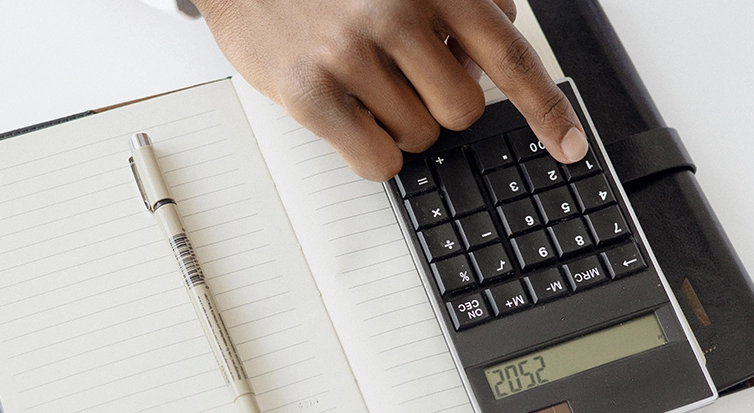Taking up Self Assessment tax filing projects can be stressful for accountants. Individual business owners or those earning non-salary income can often have messy records and disorganised processes that can be difficult to work through, especially as the deadline approaches.
You can make things so much easier for yourself and your practice if you have a system in place. Here is a handy blog to help you build that system for your accounting practice and stay sane and productive during the upcoming tax season:
1. Create a digital system for your practice
If you do not already have a digital accounting system in place, you need one now. It would help if you also pushed your clients to use one.
Modern accounting systems like 1tap receipts that support automatic data extraction and bookkeeping can easily capture transaction data right at the source, either through bank statements or by drawing information from paper receipts, thus saving you and your team much of the hassle of last-minute data chasing.
This is very useful when processing tax returns for self-employed businesses or sole traders. The system also spots errors automatically, thus allowing you to clarify things with the client promptly and store all data safely on the cloud for verification at any time.
2. Add a reasonable cushion to deal with more challenging clients
Every accountant has dealt with a few clients who persistently submit details late. These are the ones you want to start following up with some months before the deadline so you can agree on a date for data submission. If you have not started now; start now!
Analyse the complexity of the work, and estimate a reasonable amount of time needed to complete it. To drive your point home, explain the consequences (such as hefty HMRC penalties) if they do not. Some of your recalcitrant clients might need this extra shaking before they step up.
3. Set a follow-up schedule for more difficult clients
Even if you do not have extra-tricky clients, delays are bound to happen, and that is because clients might genuinely miss your emails or need to remember deadlines for sharing documents with you when caught up with other things. A simple reminder can go a long way in helping you meet your deadline.
That is why you need a system of follow-up emails reminding your clients about upcoming dates. And do not worry about being pushy. Once their tax returns are submitted on time and they are saved from the wrath of HMRC, your clients will thank you.
4. Use a tax return questionnaire to complete each client’s work in one go
Take up each client’s returns only after they send you all the necessary information. Once you have that in place, block off time to complete those returns and commit to that timeframe. Sending a tax return questionnaire helps immensely in this scenario.
Ideally, it should include exhaustive questions requesting details on P60s, P45s where relevant, share certificates, dividend vouchers, interest income certificates/statements, mortgage interest statements, P11Ds, EIS/SEIS certificates, pension, property purchase and sale, foreign income, and so on.
Having a questionnaire is much more efficient than if you were to do bits and pieces of multiple clients’ returns every day. So please list clients in order of how difficult they are or their scope of work and work your way through it.
5. Get tax return information elsewhere
Despite your best efforts to collect all data beforehand, there will always be last-minute omissions to worry about. An excellent way to bypass this is to use public APIs to directly access client data from HMRC, including PAYE information, state benefits, marriage allowance claims and so on.
6. Schedule for other tax projects too
Self Assessment tax filing takes up most of the bandwidth in the winter, but you must remember your corporate clients too. Depending on their year-end filing deadlines, you may need to plan to free yourself so you can spend more time on Self Assessment work.
Try to shift any non-urgent client work to late January or February after the tax season. It goes without saying that you need to communicate with your corporate clients and let them know what you are planning. Keeping them in the loop should help them start collecting their documents for you faster.
7. Work with an accountable outsourcing partner
Meeting a deadline is much easier when someone is holding you to it. Take the help of an accounting outsourcing specialist like Stellaripe and minimise your tax season workload. This is an excellent arrangement when you have your plate full and want to ensure you can meet the Self Assessment tax filing deadline hassle-free without stretching yourself!
Plus, if you outsource now, you’ll have better control over your clients’ accounts and will not have to chase them for anything last-minute. Outsourcing is also cost-effective.
Dates to keep in mind
Now that you know how to get started with Self Assessment tax return preparation for your clients, here is a timeline of the relevant dates for Self Assessment tax filing:
- October 5 – last date for registering your clients with HMRC for Self Assessment (for business owners, this needs to be done in the second tax year since their business began)
- October 31 – last date for submission of paper tax returns. Individuals need to request a paper return, and HMRC will do this for people who have been identified as unable to file online.
- December 30 – last date for online return submission for those clients who (i) have tax liability under £3000, (ii) already pay tax through PAYE, and (iii) wish to pay taxes on extra wages, pension or other such sources of income.
- January 31 – the date by which you need to finish filing taxes and pay all your client dues
Penalties if your clients miss tax deadlines
As you know, the HMRC is quite strict about tax deadlines. Unless your clients have a reasonable excuse and have notified the taxman of the same, missing deadlines could mean hefty fines. Here are the penalties your client can expect:
- For missing the deadline by even a day – an immediate fine of £100
- A three-month delay – £10 per day for up to 90 days
- A six-month delay – an additional fee of £300 or 5% of the tax owed, whichever is higher
- A twelve-month delay – all the previously mentioned penalties, plus an extra £300 or 5% of the tax owed, whichever is higher
- In certain exceptional cases – up to 100% of the tax owed
If your client has one of the following mitigating circumstances, though, you can submit an appeal against the tax penalty:
- Unexpected postal delays
- Unexpected, significant illness
- Problems with the HMRC portal itself
- Catastrophic events like floods or earthquakes
- Software or computer failure when filing tax returns
- Unexpected hospitalisation just prior to the deadline
- Death of a close family member just before the deadline
Over to you
In conclusion, prior preparation and open communication make the Self Assessment tax filing season less stressful for everyone.
As an accountant, you can make things easier by relying on accounting software and automation for routine tasks so that you are free to focus on trickier tax dilemmas and offer tailored advice to each client on how they can minimise their tax burden.
To alleviate your tax season burden, take help from our expert tax preparers. Let us do all the hard work for you while you focus on building relationships with clients and growing your practice.




